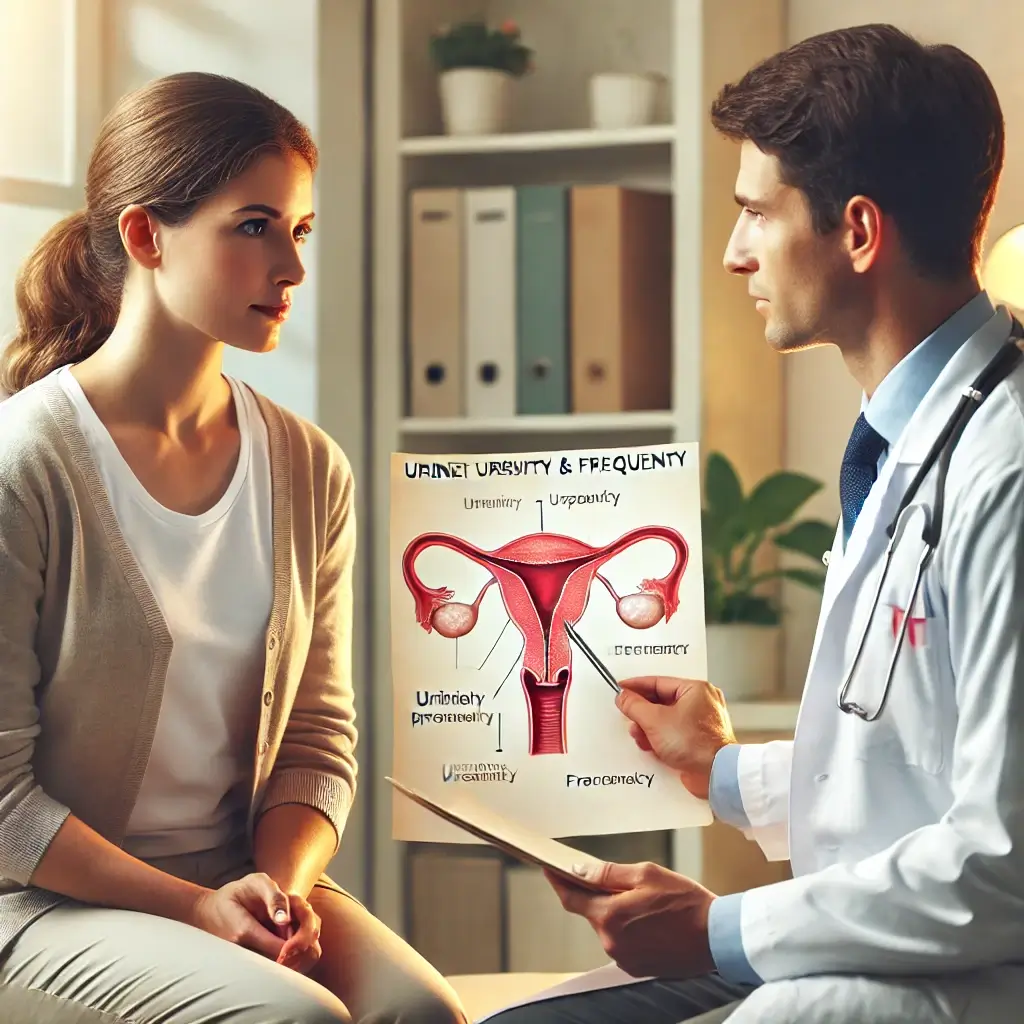The Prevalence of Urinary Issues in Older Women
Urinary urgency and frequency are issues that are more likely to affect women over the age of 50. Women over 50 indeed have a higher likelihood of experiencing urine urgency and frequency. This is a symptom that tends to be irritating and can interfere with everyday activities as well as sleep.
Understanding the Root Causes
As women go through menopause and their estrogen levels decrease, the tissues in the urethra and bladder can become thinner and less supportive. This can be a consequence of the fact that estrogen levels are decreasing. This may increase the urgency and frequency with which one urinates.
The Role of Pelvic Floor Muscles
Insufficiency of the Pelvic Floor Muscles: The pelvic floor muscles support the urethra and bladder. As we age, the muscles in this area might weaken, reducing bladder control and contributing to urine urgency and frequency.
The Impact of Urinary Tract Infections
Urinary Tract Infections (UTIs): UTIs are more prevalent in older people and have the potential to cause symptoms such as urgency and frequency.
Medication Side Effects: A Hidden Culprit
Certain medications: Medications have become an essential component of contemporary medicine and are prescribed for a wide range of health disorders worldwide. However, it is important to note that certain medications may cause patients to have side effects that are not only unpleasant but also inconvenient. Some examples of medications that might produce an increase in urine production, as well as an increase in the urgency and frequency of urination, are diuretics and blood pressure medications.
The Role of Diuretics in Urinary Issues
One type of medication known as a diuretic assists the body in eliminating excess water and salt through urine. These medications are frequently used to treat a number of medical disorders, including excessive blood pressure, heart failure, and edema. Diuretics accomplish their purpose by increasing the amount of urine generated by the kidneys. This increase in urine production, on the other hand, might cause patients to urinate more frequently and to have an abrupt need to urinate, both of which can be pretty distressing for the patients.
Blood Pressure Medications and Urinary Symptoms
In a similar vein, drugs used to treat high blood pressure, such as calcium channel blockers and ACE inhibitors, can also induce an increase in urine production. These drugs accomplish their intended purpose by relaxing the blood vessels and lowering the pressure in the arteries. This relaxation, on the other hand, can also affect the bladder muscles, which might result in urgency and frequency.
The Importance of Patient Awareness
It is essential for patients who are taking drugs for blood pressure or diuretics to be aware of these adverse effects and to address them with their healthcare provider. It is possible that the dosage of the drug will need to be altered in certain circumstances or that an alternative medication will be required to be administered.
Maintaining Hydration: A Delicate Balance
Even while taking these medications, patients must maintain a healthy level of hydration. Dehydration can worsen adverse effects and lead to other issues. Consuming a large amount of water can help eliminate excess salt and prevent dehydration.
The Double-Edged Sword of Medication
To summarize, whereas drugs have the potential to benefit the management of a variety of health disorders, they also have the potential to cause side effects that can be uncomfortable and bothersome. It is important for patients to be aware of these potential adverse effects and to address them with their healthcare practitioner to guarantee that they are receiving the most effective therapy for their illness.
Other Medical Conditions Affecting Bladder Function
Various medical diseases, including diabetes, neurological conditions, and certain malignancies, can affect bladder function, which can also contribute to urine urgency and frequency.
Comprehensive Treatment Strategies
Urinary urgency and frequency in women over the age of 50 can be treated with a variety of different treatments, including the following: Alterations to one’s lifestyle, such as reducing one’s weight, reducing one’s consumption of coffee and alcohol, and engaging in pelvic floor muscle exercises (Kegels), can all improve bladder control.
Bladder Training: A Behavioral Approach
The process known as bladder training employs techniques to retrain the bladder to hold pee for extended periods of time.
Medication and Surgical Options
Medication: Medication can help induce relaxation in the bladder muscles or enhance the bladder’s capacity to store urine. Surgery: In certain instances, surgical intervention may be suggested to rectify structural issues or to provide support for the bladder.
The Importance of Seeking Professional Help
If you are experiencing urinary urgency and frequency, it is essential to consult a medical professional to ascertain the underlying cause of these symptoms and discuss the most effective treatment options. By receiving therapy and diagnosis at an earlier stage, you can improve your quality of life and prevent consequences.

Dominic E. is a passionate filmmaker navigating the exciting intersection of art and science. By day, he delves into the complexities of the human body as a full-time medical writer, meticulously translating intricate medical concepts into accessible and engaging narratives. By night, he explores the boundless realm of cinematic storytelling, crafting narratives that evoke emotion and challenge perspectives.
Film Student and Full-time Medical Writer for ContentVendor.com




